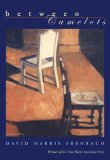“It is the responsibility of writers to listen to gossip and pass it on. It is the way all storytellers learn about life.”
— Grace Paley
Author Website
By bakerkline
By bakerkline
… and why we shouldn’t all be writing novels:
 We are frequently told, by the market and also by the novelists that the market promotes, to revere certain forms of writing over others. The publishing industry by necessity emphasizes profits, and novels sell better than collections of short stories, which means there’s pressure on fiction writers; often we start out writing short stories, on our own or in creative writing workshops, but we soon feel pressured to “graduate” to the novel. The short story is generally regarded as inferior, nothing more than a stepping stone. Yet there is no objectively best form of writing – only the form that suits us best.
We are frequently told, by the market and also by the novelists that the market promotes, to revere certain forms of writing over others. The publishing industry by necessity emphasizes profits, and novels sell better than collections of short stories, which means there’s pressure on fiction writers; often we start out writing short stories, on our own or in creative writing workshops, but we soon feel pressured to “graduate” to the novel. The short story is generally regarded as inferior, nothing more than a stepping stone. Yet there is no objectively best form of writing – only the form that suits us best.
It’s an old saw in creative-writing classrooms that content dictates form. This means that certain forms of writing are best suited for certain kinds of material, and not as well suited for others. In poetry, for example, a haiku, with its quiet imagery and its sudden leap, is ideal for describing a moment of insight, and lousy for epic storytelling. A Shakespearean sonnet, with its three quatrains and final couplet, is good for developing an idea in three stages and then summing it up, and not as good at conveying obsessively circular thinking. For that kind of thinking, you might need a sestina, a lengthy poem which repeats certain words over and over.
The same content-form truism holds for fiction. A novel is not just a long short story – it’s a whole other animal. Because of its great size, it’s well-suited to handle complicated plot and structure, and in fact you probably need that elaborate plot to keep a reader interested for all those pages. If what you want to do is shed light on a moment in time, you should probably write a short story, too short for a wildly complicated structure but plenty big enough to illuminate something powerfully. And so the short story is no stepping stone – not any more than a haiku is a warm-up for writing a sonnet. A short story is a vehicle for a certain kind of content, content that won’t be able to find a home anywhere if the only things we write and read are novels. Some authors – including Raymond Carver, Anton Chekhov, Alice Munro and Grace Paley – write for a lifetime without ever needing to “graduate” from short fiction. (And some novelists never feel the need to write a short story.)
This is easy to say, but hard to remember. Several years ago I worked on a manuscript about a new single mother struggling to adjust to parenthood. To make it a novel I intensified this mother’s feelings and embedded them in an elaborate plot, to the point where this woman was behaving in crazy and unrealistic ways. I hadn’t set out to study someone flirting with madness – I had set out to study a person struggling the way many new parents do. But because I felt it had to be a novel, I badly distorted my material.
As soon as I realized my mistake I returned to a more appropriate form; I am now writing short stories about the many diverse experiences of parenthood. Each one is a window on a feeling, a situation, a moment. In writing them as short stories, I am saying what I need to say, how I need to say it.
If we listen to the voices telling us that certain kinds of writing are preferable because they’re more marketable, we may find it impossible to say what we need to say. If we’re going to listen to any voices, I say let’s listen to our own – voices that tell us to find our form and, without apology, make ourselves at home there.
David Harris Ebenbach’s first book of short stories, Between Camelots, won the Drue Heinz Literature Prize and the GLCA New Writer’s Award. His short fiction has been published in the Antioch Review, the Greensboro Review, and Crazyhorse, his poetry in Artful Dodge, Mudfish, and the Journal of the American Medical Association, and he wrote a chapter, “Plot: A Question of Focus,” for Gotham Writers Workshops’ book Writing Fiction. Recently awarded a MacDowell Colony fellowship, Ebenbach teaches Creative Writing at Earlham College. Find out more at www.davidebenbach.com.
A literary historical novel set in Civil War-era North Carolina, based on a true family story and told from the perspective of Sarah Bunker, one of two sisters who married Chang and Eng, the famous conjoined twins…learn more